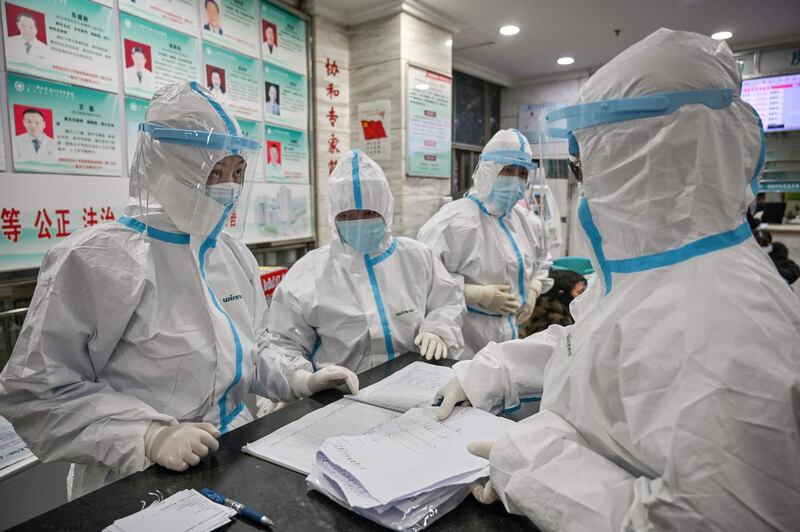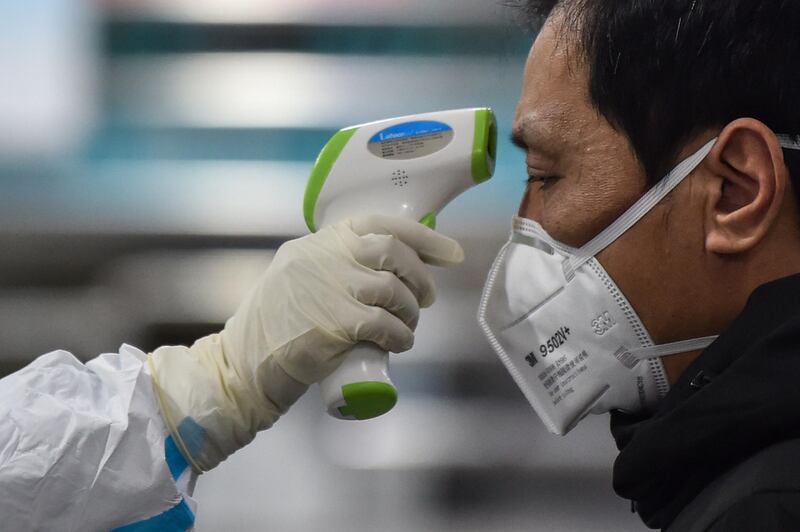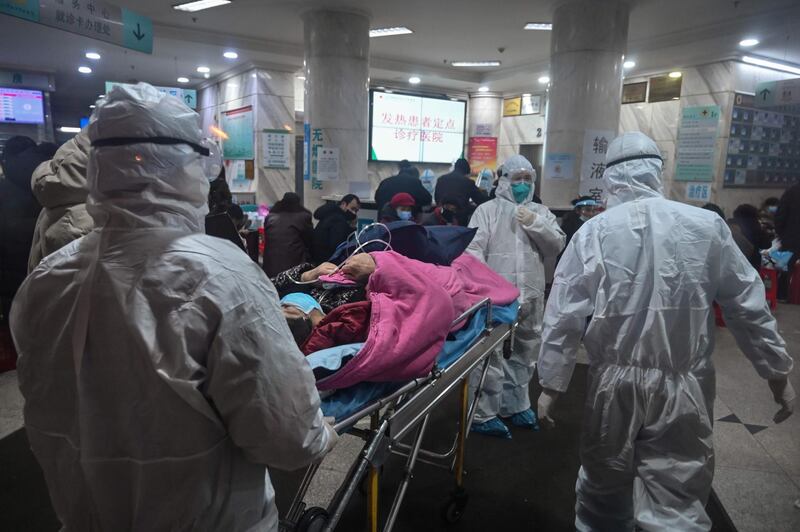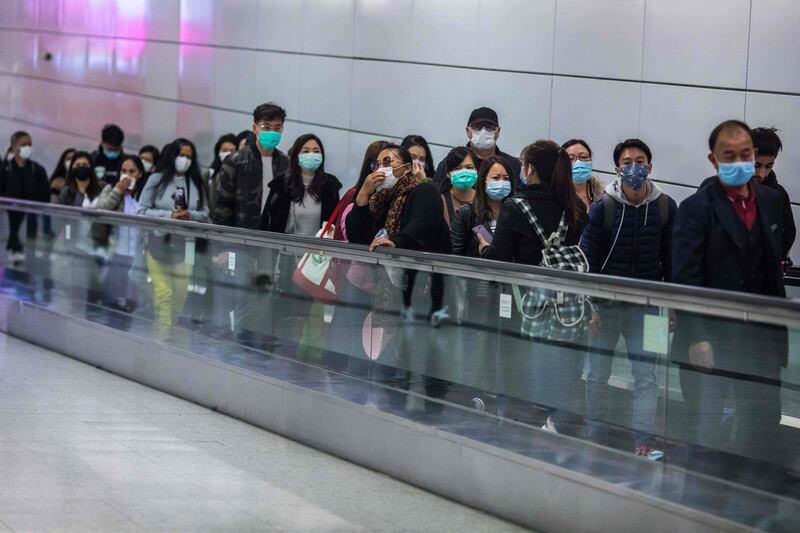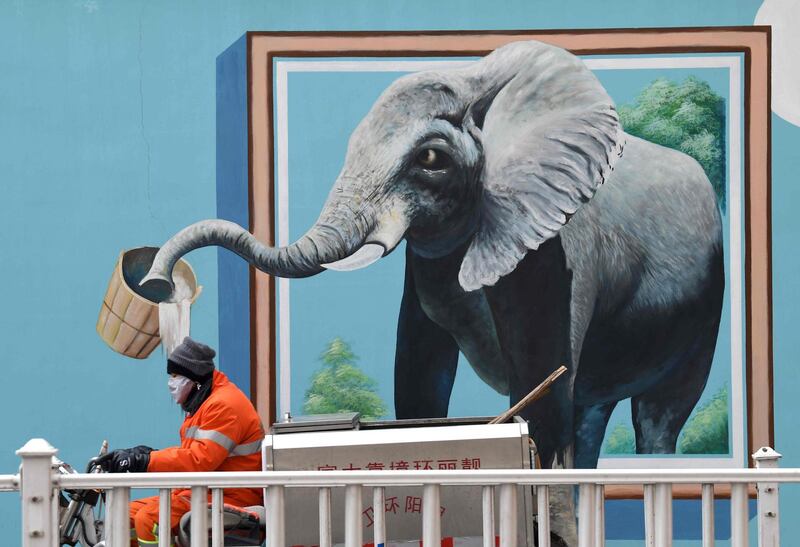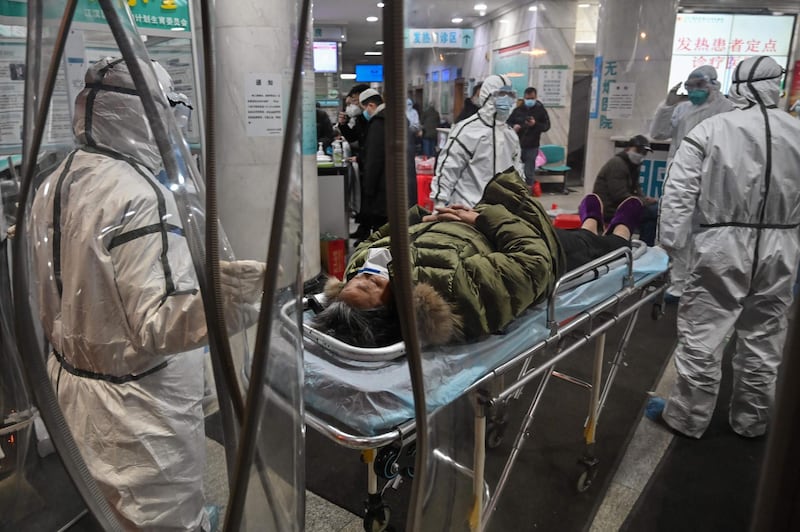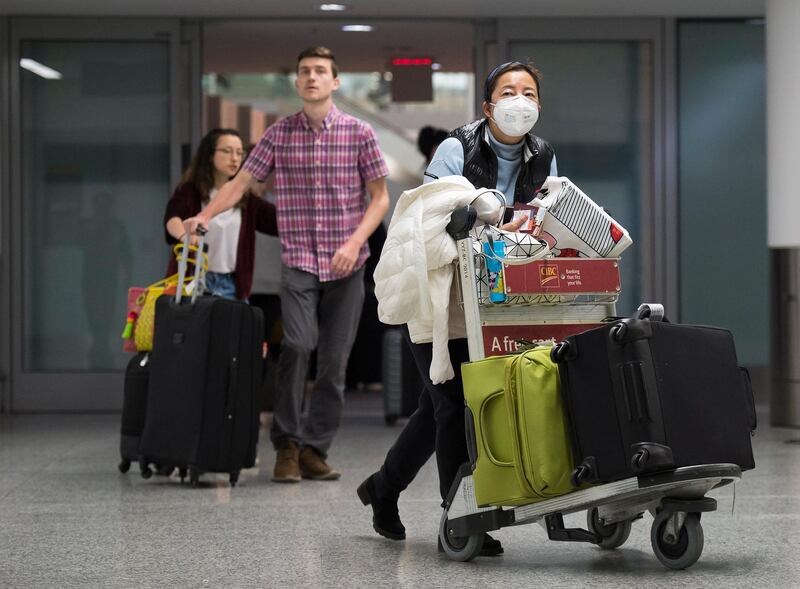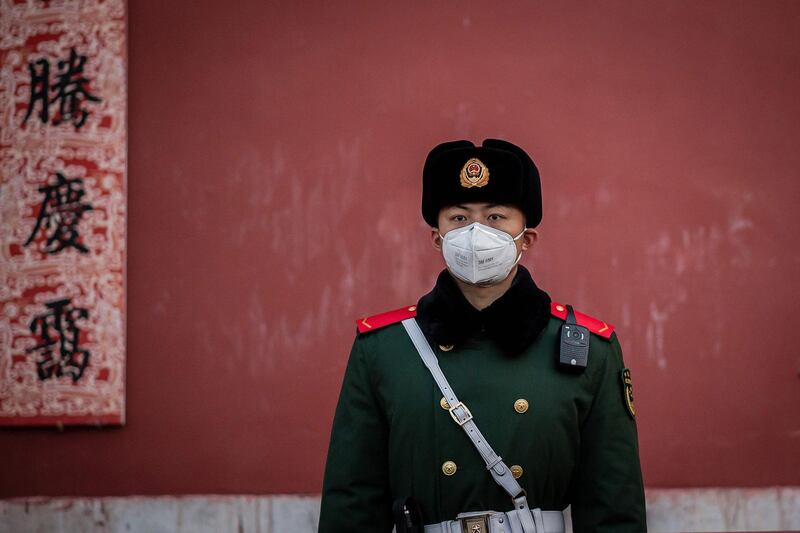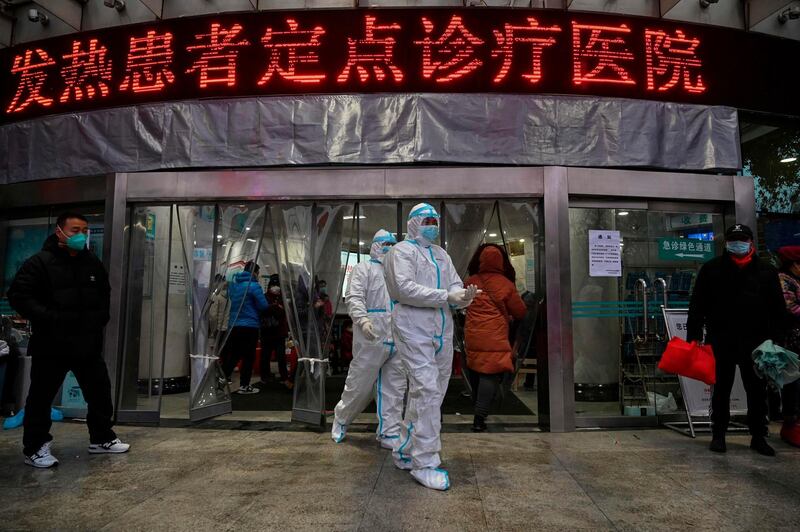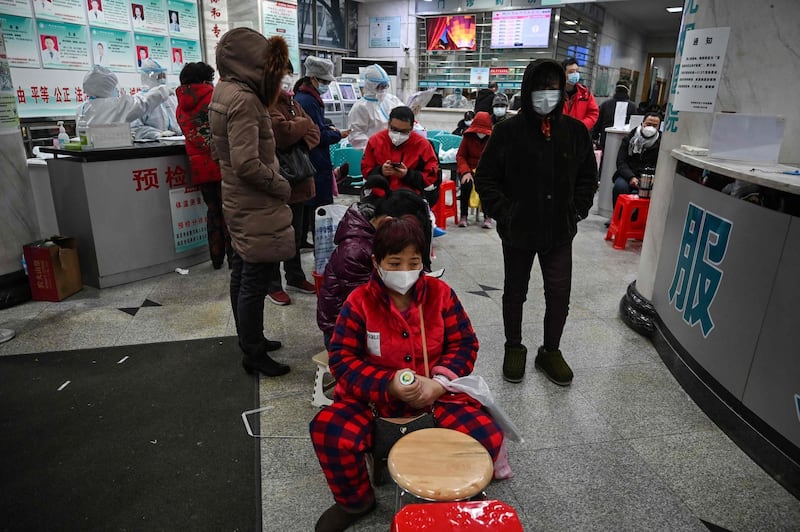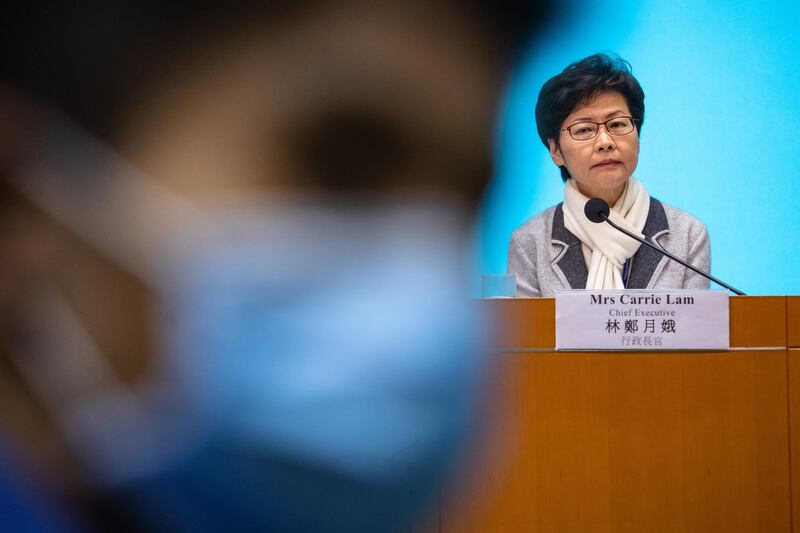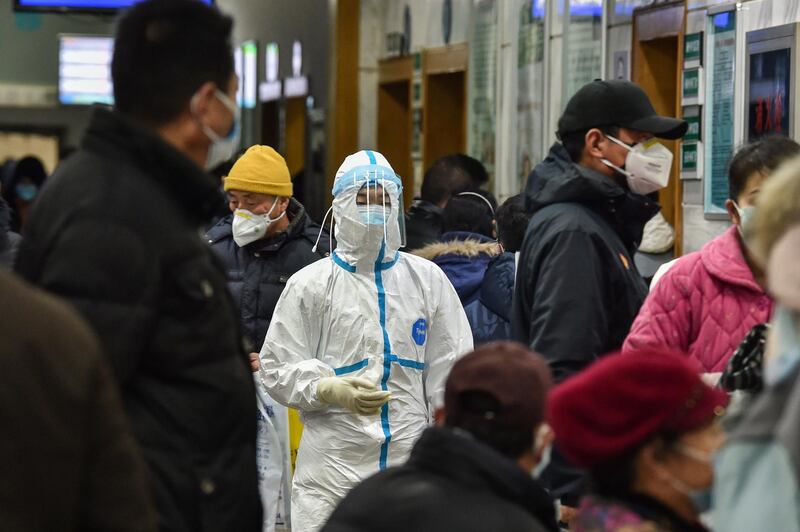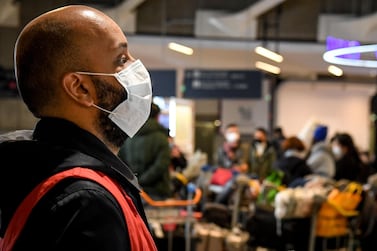The death toll from the outbreak of a new coronavirus in China has jumped to 80 after 24 new fatalities were confirmed in the hard-hit province of Hubei, the country's National Health Commission said on Monday.
The Commission said that the total confirmed cases nationwide had now risen to 2,744.
Earlier on Sunday, Chinese authorities ordered the extension of a public holiday to try to contain the outbreak of a deadly virus.
A working group chaired by Premier Li Keqiang to tackle the outbreak decided on Sunday "to reduce population flows" by extending the Lunar New Year holiday, which had been scheduled to end on January 30, state news agency Xinhua said.
The holiday will be extended until February 2.
Chinese health officials said on Sunday the virus appeared to be becoming more infectious.
"According to recent clinical information, the virus's ability to spread seems to be getting somewhat stronger," said Ma Xiaowei, head of China's national health commission.
Mr Ma said the virus was "contagious during the incubation period", which could last from one to 14 days.
This means those infected could pass the virus to others even before they started to show symptoms.
Mr Ma said that was not the case with Severe Acute Respiratory Syndrome, or Sars, which was caused by a coronavirus that emerged from China in 2002.
Sars killed nearly 800 people globally in 2002 and 2003, with most of the deaths in China and Hong Kong, but the new illness does not appear to be as deadly.
"From what we see now, this disease is not as powerful as Sars," said Gao Fu, head of China's Centre for Disease Control and Prevention.
Attempts to curb the spread of the disease have led to transport shutdowns in large areas of China and screening at airports and other border points worldwide, including the UAE.
The Minister of Health and Prevention, Abdulrahman Al Owais, said on Sunday that no cases had been found in the UAE and all necessary precautions were taken to protect the country.
In China, authorities on Sunday expanded transport restrictions imposed in the central city of Wuhan, capital of Hubei province, where the disease was first detected in late December.
All inter-provincial and inter-city bus routes and connections were shut in Hebei province, while the island province of Hainan also halted inter-provincial bus travel on ferries.
Authorities in Guangdong and Jiangxi provinces, and the cities of Nanjing in Jiangsu, Maanshan in Anhui and Xinyang in Henan province, ordered everyone to wear face masks in public.
Mask factories that had shut for the Chinese New Year reopened and offered employees between three and four times their normal wages to return to work as demand soars.
The US, France, Japan and Australia announced plans to move their citizens out of Wuhan, while the Saudi embassy in Beijing advised citizens to leave China or stay in their homes.
Some foreigners stranded in Wuhan said they feared going outside even though their food supplies were running low.
"We want to be evacuated as soon as possible, because either the virus, the hunger or the fear will kill us," Mashal Jamalzai, a political science student from Afghanistan at Central China Normal University, told AFP.
The Mayor of Wuhan, Zhou Xianwang, on Sunday said he expected another 1,000 patients in the city, highlighting the immense pressure on its infrastructure.
Wuhan's city government will speed up construction of special hospitals to deal with infected patients, Mr Zhou said.
Wuhan, a city of about 11 million, has been under virtual lockdown amid intensifying efforts to contain the outbreak.
Medical supplies are being rushed to the city, including 14,000 protective suits, 110,000 pairs of gloves, and masks and goggles.
The National Health Commission said it was bringing in medical teams to help handle the outbreak, and the Chinese military sent 450 medical staff, some with experience in past outbreaks, including Sars and Ebola, Xinhua reported.
Most of the cases detected so far have been in China, including five cases in Hong Kong and two in Macao.
Small numbers have been found in Thailand, Taiwan, Japan, South Korea, the US, Vietnam, Singapore, Malaysia, Nepal, France and Australia.
The US confirmed cases in Washington state, Chicago, and most recently southern California.
The latest patient, announced on Saturday night, travelled from Wuhan and was being kept in isolation at a hospital.
Taiwan, Singapore and South Korea each reported one new case on Sunday, while Thailand reported three to make it eight cases, the most outside of China.
Canada said it discovered its first case, a man in his 50s who was in Wuhan before flying to Toronto.
Dr Theresa Tam, Canada’s chief public health officer, said the man had mild symptoms when he flew from Wuhan to Guangzhou, China, and then on to Toronto.
He was admitted to hospital a day after arriving on a China Southern Airlines flight on Thursday.
Dr Tam said officials were locating passengers who were within a 2-metre radius of the man’s seat, or anyone who might have served or helped him.
The outbreak was suspected to have originated in a Wuhan market where animals including rats, snakes and hedgehogs were sold.
China on Sunday banned all trade in wildlife until the health emergency was over.
Wild and often poached animals packed together in Chinese markets are suspected to be incubators for viruses to evolve and jump to humans.
The viral outbreak has severely affected celebrations of the Lunar New Year, China’s peak travel period.
Tourist sites such as Beijing's Forbidden City and a section of the Great Wall have closed.
Shanghai's Disneyland closed on Saturday, and Hong Kong’s Disneyland and Ocean Park closed on Sunday.
Overall passenger travel declined by nearly 29 per cent on Saturday, the first day of the new year, from a year earlier, with air passengers down nearly 42 per cent, a Transport Ministry official said.
A working group set up to tackle the epidemic, chaired by Chinese Premier Li Keqiang, called for local authorities to make arrangements to consider extending the week-long holiday to prevent the movement of people.
Beijing's education authority said the start of the spring semester had been postponed until further notice for all education levels.
Shanghai announced that middle and elementary schools and kindergartens would remain closed until February 17.

